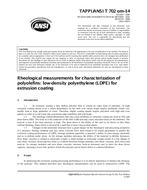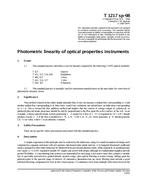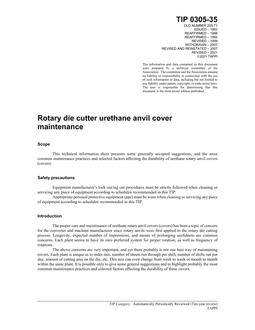This method describes the procedure for determining the available chlorine of bleaching powder, calcium hypochlorite bleach liquor, and bleach sludge. In addition, the procedures for determining total chlorine and titratable alkali are described. In these procedures the available chlorine, as determined, includes any chlorite that may be present.
Available chlorine is determined by adding a measured amount of sample solution to an acidified solution of potassium iodide, liberating an equivalent amount of iodine. This free iodine is determined by titration with standardized sodium thiosulfate solution, using a starch indicator endpoint.
Total chlorine is determined titrimetrically by the Mohr method, employing standardized neutral silver nitrate solution. The determination involves treatment of a measured amount of sample solution with an excess of dilute (3%) hydrogen peroxide to reduce hypochlorites to chloride. The determination includes chloride formed during manufacture of the bleach as well as that formed through the reduction treatment. Potassium chromate is employed as indicator in the titration.
Titratable alkali is determined in a measured amount of the sample solution with standardized hydrochloric acid solution. Bleaching properties of the sample are discharged by the addition of small amounts of hydrogen peroxide (3%). Methyl orange/xylene cyanole indicator is used as the endpoint detector.
Product Details
- Published:
- 01/01/2021
- Number of Pages:
- 7
- File Size:
- 1 file , 250 KB


